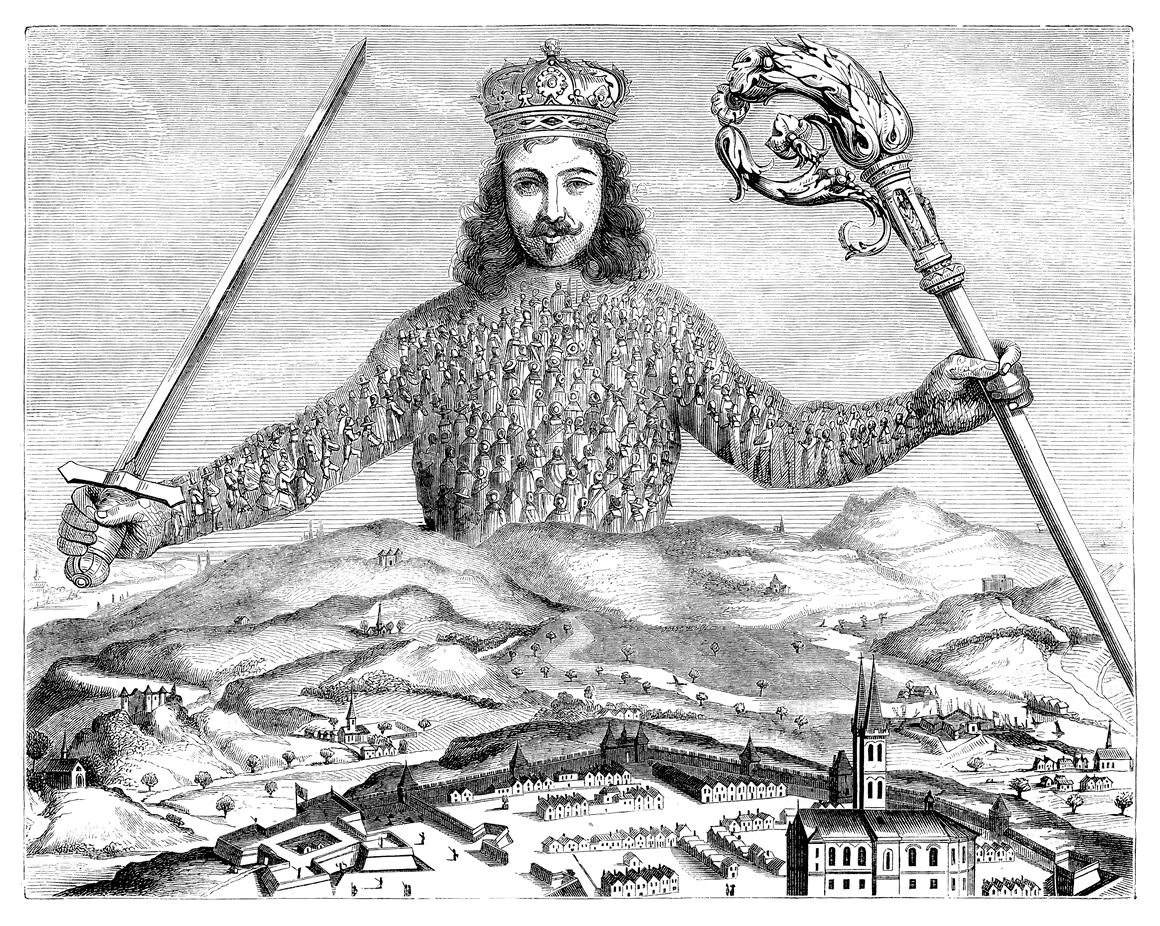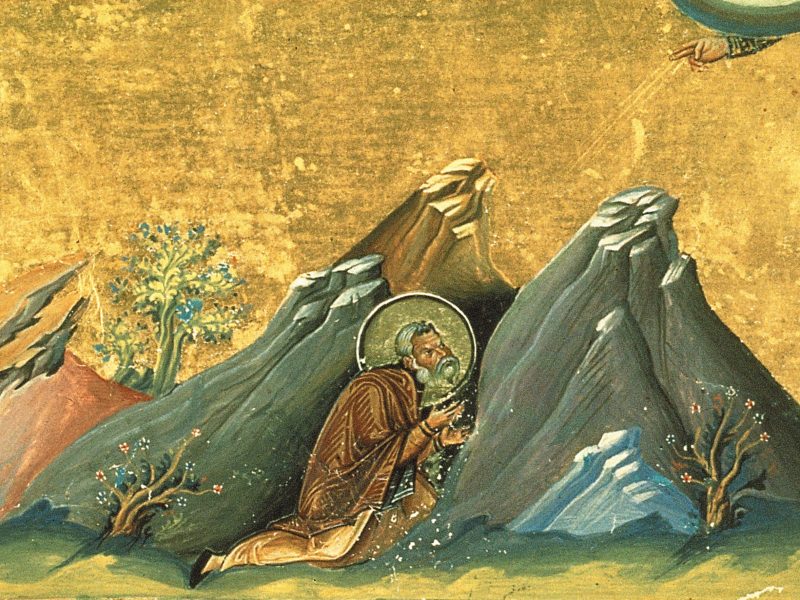by Gideon Lazar
This is the third in a series of articles on Genesis as a polemic. Part 1 can be found here and part 2 can be found here.
In part one, we discussed how Genesis was originally crafted as a polemic against pagan creation myths. We then saw in part two that Genesis was useful not only in its original context, but against new false cosmologies, such as those of the Gnostics. Genesis is a continual wellspring for the refutation of heresies, and this is because it reveals the true account of history. Heresy usually requires its own creation myths that provide an alternative story of human origins to the one revealed to Moses. This is why Genesis is so vital today. It exposes the false creation myths that are the foundation of our own society.
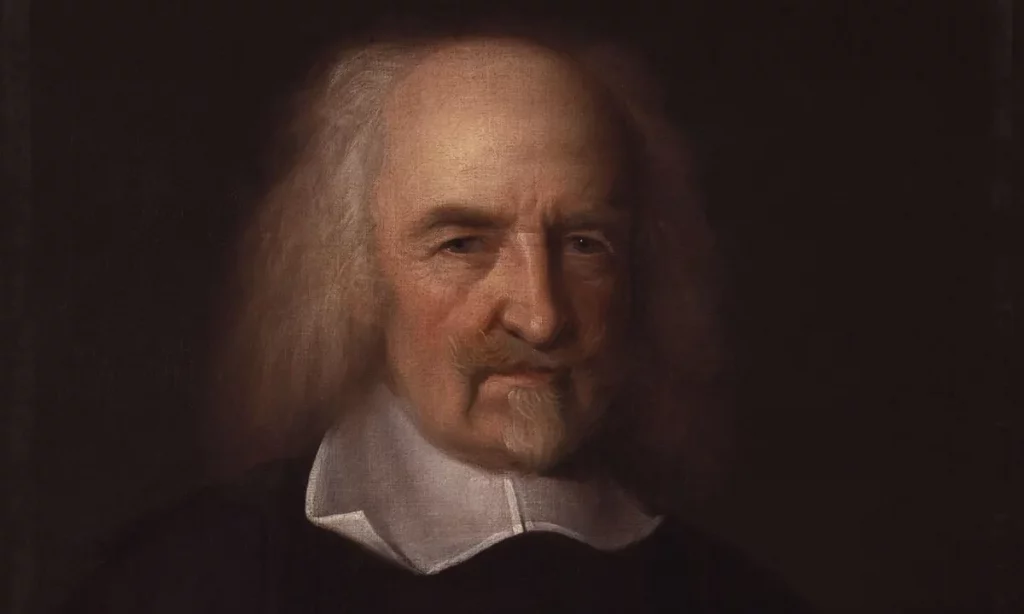
Hobbes and the State of Nature
One of the founders of the modern world is Thomas Hobbes. Living in the 17th century, Hobbes saw the endless violence of his own day and wished to propose a solution. In his book Leviathan, Hobbes envisions how governments began to exist in the first place. Having already articulated a specifically anti-scholastic theory of politics in the first twelve chapters, in chapter 13 Hobbes explains the original state of man. Since, for the most part, “Nature hath made men so equal in the faculties of body and mind” and subject to the passions of “fear of death; desire of such things as are necessary to commodious living; and a hope by their industry to obtain them,” man is naturally in a state of “war of every man against every man” in which “nothing can be unjust. The notions of right and wrong, justice and injustice, have there no place.” Man is naturally ruled by his passions which leads to endless conflict with his neighbor.
This leads Hobbes in the next chapter to articulate his vision of the natural law. Hobbes brings up the issue of the distinction between jus (right) and lex (law). He understands this distinction as that “right consisteth in liberty to do, or to forbear; whereas law determineth and bindeth to one of them: so that law and right differ as much as obligation and liberty.” This means that the natural law and natural right, traditionally understood as two aspects of the same thing, are now opposed to one another. Hobbes defines natural right as the freedom to do what one wishes, while the natural law is the desire to preserve one’s own life. Therefore, men have to come out of the state of nature, the war of all against all, and abandon this natural right of absolute freedom to the state, which receives its power from the social contract. At this point, the sovereign of the state is free to create whatever laws he wishes, because that is necessary to preserve the peace.
The Error of Hobbes
There are certainly elements of truth within Hobbes’s narrative. For example, it is the case that men are by nature relatively equal, as all men are made in the image of God. Likewise, it is the case that men at certain times come together to form governments. However, the central error of Hobbes is, as many contemporary critics pointed out, that his supposed state of nature never happened. [1] His views sound more like the pagan myths found in Horace and Lucretius. Man was created in a garden with pre-existing social relationships, and even after the fall we see man as farmers, shepherds, and city builders within the first generations of humans. Genesis reveals that man is by nature a political being.
The errors of Hobbes can be seen clearly by comparing him with his near contemporary, Fr. Francisco Suarez SJ. Suarez was very well known even in the Protestant world and Hobbes was undoubtedly familiar with his work. In book three of De Legibus, Suarez conducts a similar thought experiment to Hobbes on how governments form. However, the answers Suarez comes to are very different. Suarez points out how man was created, is by nature a political animal. Man has always existed in relationships and therefore needs to be directed to the common good. Even before the fall then, mankind would have needed a political authority as we grew from a single couple into a larger community. While the fall means that there must now be a coercive aspect to law, it still would have been directive apart from the fall. As an additional proof, Suarez points out how even the angels exist within a natural hierarchy. While it is true that at times civilization falls into disorder, since man is naturally political, we come together to form a community and we freely give political authority into the hands of a group or individual to help guide society.
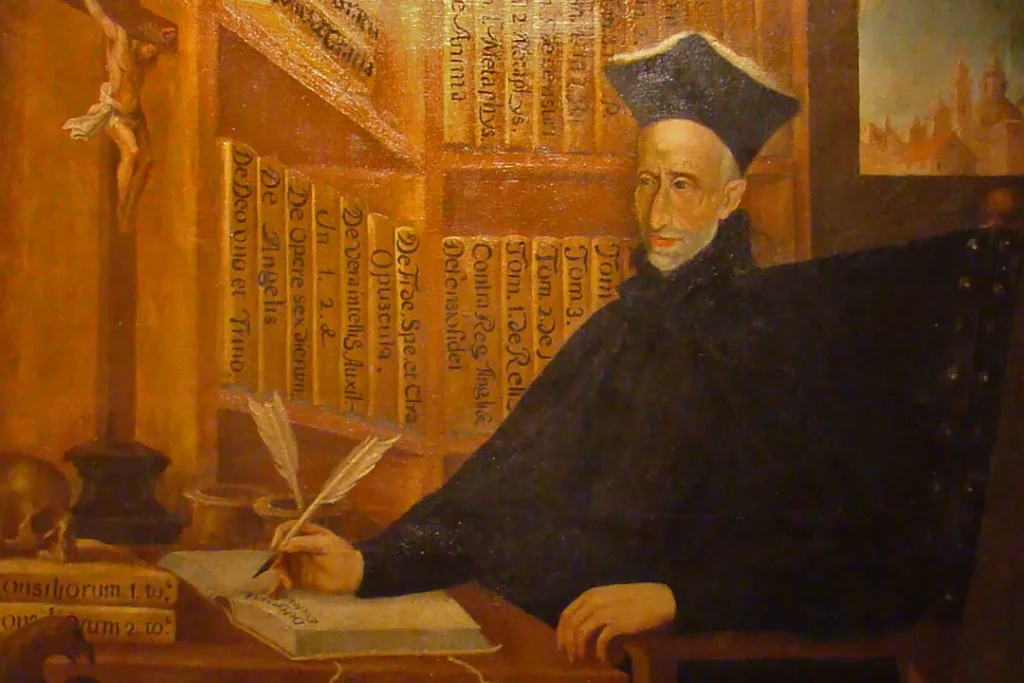
This is the key difference between Hobbes and Suarez. Suarez starts with man as revealed in scripture. The state of nature is man in the garden, man in community. Sin corrupts, but does not destroy, human nature. For Hobbes, the state of nature is a state of chaos out of which we must ascend. Hobbes therefore has to reject the Eden story and come up with a new creation myth. While Hobbes does discuss Adam a number of times in Leviathan, Adam oddly does not come up in the discussion of how man originally was, the spot where it would be most important to mention him.
This difference can again be seen in how Hobbes departs from the classical understanding of the natural law. The natural law is no longer about conforming oneself to nature so that one can best perfect his own human nature, but it becomes about violence. Right is no longer the object of justice which arises from the natural law, but rather is something unrelated to justice and opposed to law. While this could sound like unimportant philosophical nuances, it is not. This is nothing short of a rejection of the entire tradition of Catholic moral theology.
Hobbes’s rejection of natural law leads him to think that man is naturally ruled by the lower passions of desire and fear because of the natural scarcity of the world. However, Marc Barnes has pointed out how this fundamental assumption of liberalism is contrary to how the Church Fathers interpreted Genesis. [2] They saw man as starting out in a state of abundance in the garden, and scarcity, leading to the rule of the lower passions, only comes about because of sin. Barnes argues that this aspect of the liberal origin story sounds far closer to the Atra-hasis, one of the pagan myths discussed in part one, than it does like the Biblical origin story.

The New Creation Myth
How did this origin come about? Barnes argues it was the discovery of the Americas. [3] The discovery of a whole new group of peoples without any apparent civilization led to a new vision of the origins of civilization. Rather than hunter-gathering being seen as a degeneration of society, as men were originally gardeners and farmers, this tribal way of life was seen as where all civilization came from. This evolutionary vision of civilization thus became ingrained in the imagination of the West ever since.
While early liberals had to come up with elaborate ways to connect their theories with scripture, this is no longer necessary today. Now we have a new creation myth: Darwinism. Man arose out of a state of nature in which there was a war of all against all. But this time it was not merely a war of all men, but a war of the whole cosmos. The chaos of stars from the Big Bang produced plants, and then the chaos of chemicals on Earth produced life, and then the chaos of life produced man, and then the chaos of man produced civilization, and finally the chaos of civilization is bringing about modern technocratic liberalism. There is no well-ordered universe and no natural law. Man did not begin in a garden, but in the chaos of the world. Man killed lesser forms of himself as he alone was the most fit hominid to survive.
If we are to be consistent readers of Genesis, we must reject this new pagan creation myth along with all the others. We must follow in the footsteps of Moses, Irenaeus, Suarez, and all the other great Catholic expositors of Genesis and the doctrine of creation.
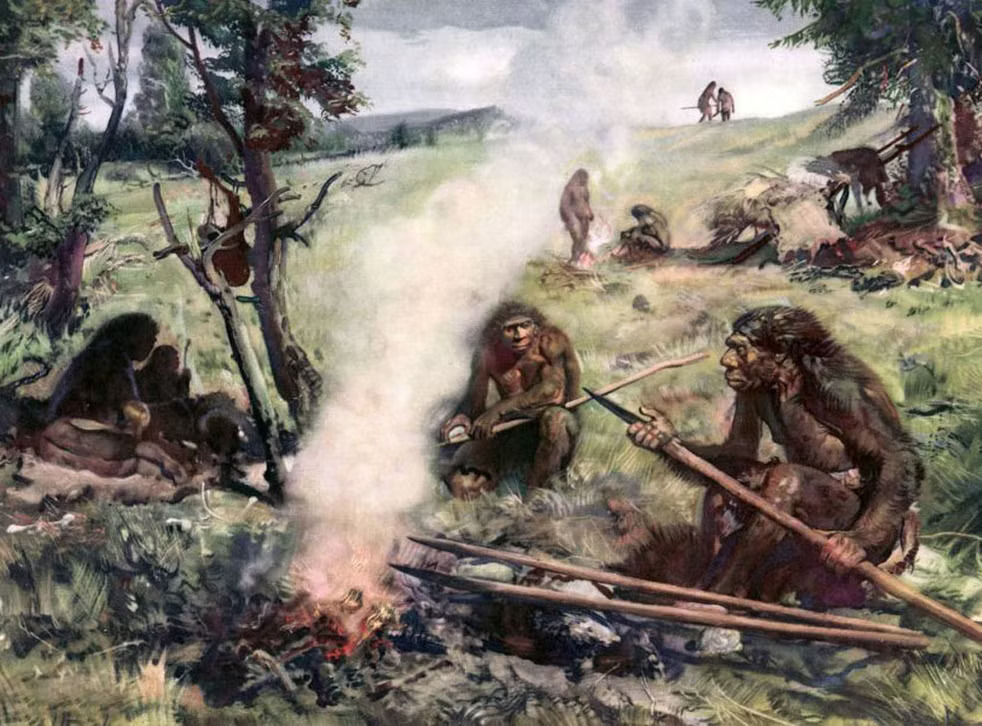
Notes
[1] Pat Moloney, “Leaving the Garden of Eden: Linguistic and Political Authority in Thomas Hobbes,” History of Political Thought 18, no. 2 (1997): 249-254.
[2] Marc Barnes, “Adam without Scarcity,” New Polity, 2019. https://newpolity.com/blog/malthus. Barnes, “What Becomes of Eden When Adam Becomes Afraid,” New Polity, 2019. https://newpolity.com/blog/adam-afraid.
[3] Barnes, Jacob Imam, “Adam Without Liberalism,” New Polity, podcast audio, 2020. https://newpolity.com/podcasts-hub/adam-without-liberalism.
